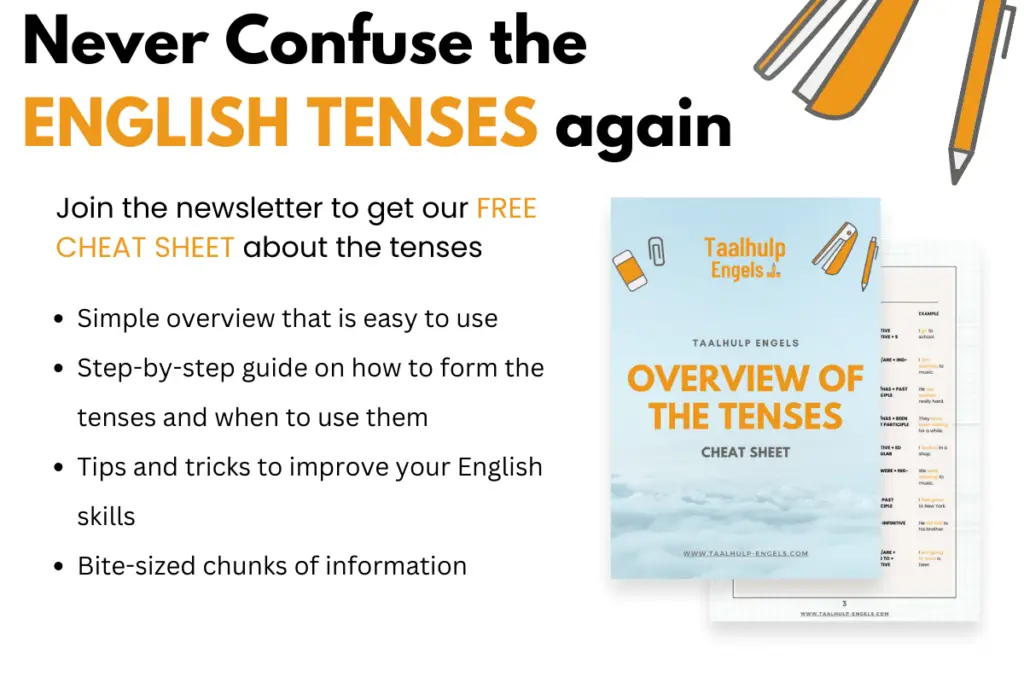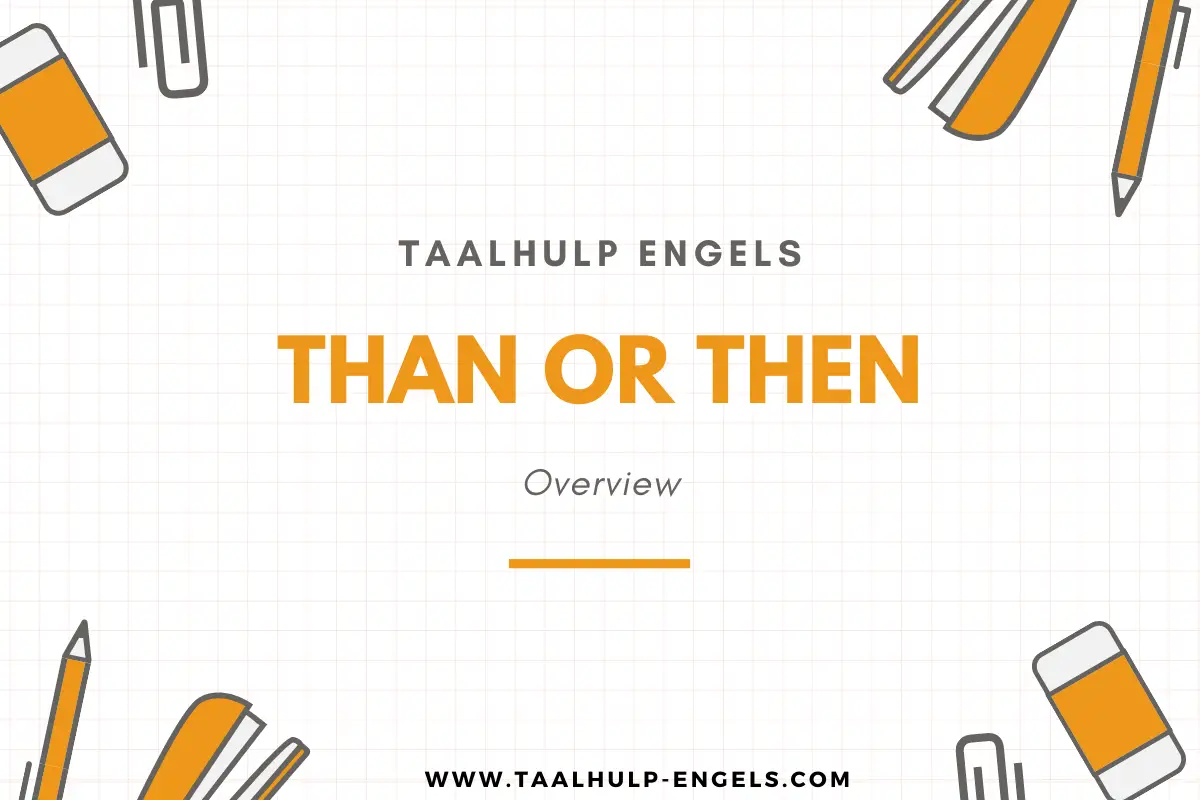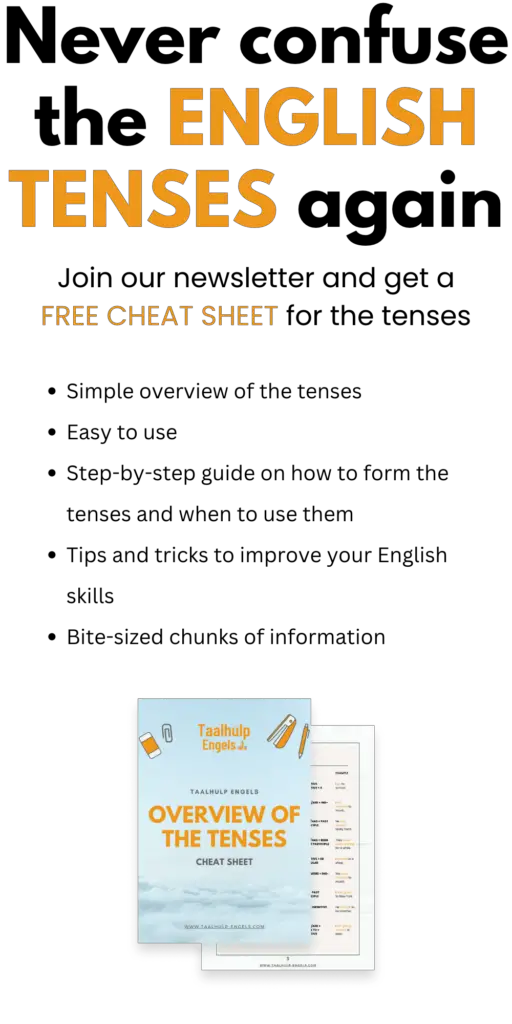A common mistake in English is using than and then in the wrong context. Many people don’t know when to use than and then because these words are pronounced in the same way, but they have completely different meanings.
Table Of Contents
Difference than and then
The difference between than and then is that than is used in comparisons as a conjunction and as a preposition. Then is used to indicate time.
Than: as conjunction or preposition in comparisons.
- He is taller than my sister.
- That building is bigger than the old one.
- I have more money than my sister.
Then: to indicate time. It can be an adverb, noun, or adjective.
- I was living in Paris then.
- What will you do then?
- First, you call me, then you take a nap.

Than or then overview
It’s difficult to know which word is used based on the pronunciation. That is why it’s important to look at the context in which it appears. You have an overview of the differences and some examples:
| Word | Meaning | Example |
|---|---|---|
| than | in a comparison | I am taller than my brother. |
| then | as a time reference | Work comes first, then you can relax. |


Exercises
- Than or Then Exercise 1
- Than or Then Exercise 2
- Than or Then Exercise 3
- Than or Then Exercise 4
- Than or Then Exercise 5


